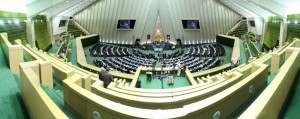 TEHRAN (FNA)- The Iranian Parliamentís Human Rights Commission in a statement on Sunday condemned London's role in masterminding the 1953 coup and the 2009 post-election unrests in Iran.
TEHRAN (FNA)- The Iranian Parliamentís Human Rights Commission in a statement on Sunday condemned London's role in masterminding the 1953 coup and the 2009 post-election unrests in Iran."The British intelligence body has plotted two big coups against the great and civilized nation of Iran throughout the history," said the statement.
ďAnd this point will not be erased from the historical memory of our nation that Britainís media declared the code for triggering unrests in 2009 and wired the code for the coup in 1953,Ē it added.
ďThe British media empire and the arrogant powers, by applying their usual method of distorting the history insidiously, gradually depleted this ominous event (1953 coup) from inside and through their deceptive references distorted the actual story by trying to portray their coup against Iranís legal government, which unfortunately resulted in over 20 years of dictatorship, as an internal affair ordered by the (deposed) shah in a bid to distort the history to their own benefit as they did after they failed in their subversion attempt in 2009,Ē the statement added.
The lawmakers underlined that the Iranian nation will never forget the bad memory of the tortures, killings and backwardness that were imposed on Iran as a result of the 1953 ominous coup.
The 1953 coup d'ťtat (known in Iran as the 28 Mordad coup) was the overthrow of the democratically elected government of Iran, and its head of government Prime Minister Mohammad Mosaddeq on August 19, 1953, orchestrated by the United Kingdom (under the name 'Operation Boot') and the United States (under the name Pejak Project).
The coup saw the formation of a military government under Mohammad Reza Shah Pahlavi, who progressed from a constitutional monarch to an authoritarian one who relied heavily on United States' support to hold on to power until his own overthrow in February 1979.
Also, several western states, specially the US and Britain,† stoke post-election unrests in Iran in 2009. Tehran later revealed strong evidence substantiating the interfering role of several foreign embassies and diplomats in stirring riots in Iran.
British embassy's local staff in Tehran Hossein Rassam, who was charged with spying, admitted cultivating networks of contacts in the opposition movement using a £300,000 budget.
He also confessed that the local staff of the embassy had attended protests against June's presidential election results along with two British diplomats, named in court as Tom Burn and Paul Blemey, and that he had attended meetings with the defeated opposition leader, Mir Hossein Mousavi, alongside Burn.
By Fars News Agency
The Iran Project is not responsible for the content of quoted articles.










